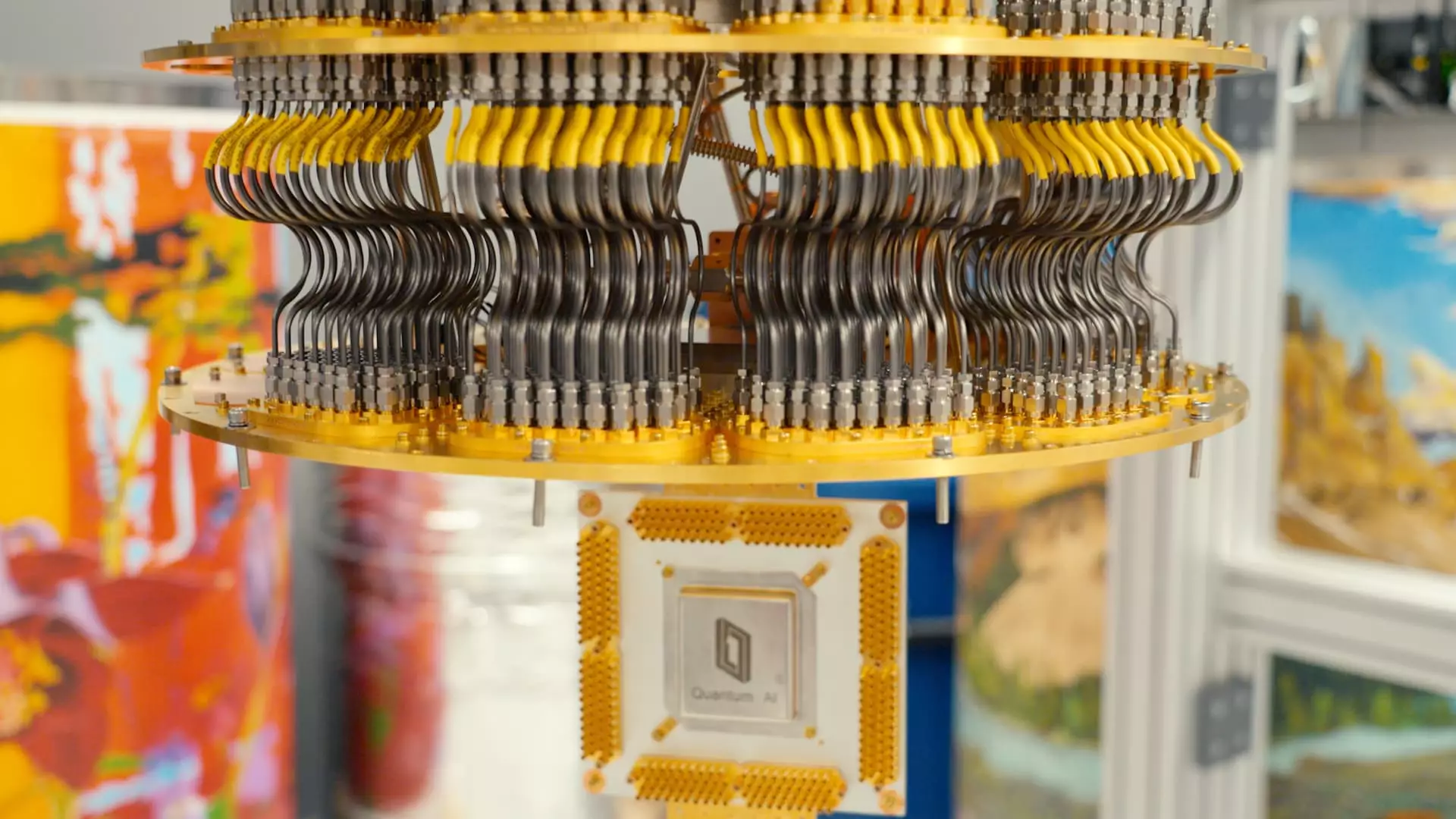Nestled within the cloistered confines of Santa Barbara, California, Alphabet Inc. is investing heavily in what may become a watershed moment in technological history: the development of advanced quantum computers. This venture is no mere sideline; it represents a calculated gamble by Google to not only reclaim its stature in the rapidly evolving tech landscape, but also reshape our understanding of artificial intelligence (AI). With the director of Google Quantum AI, Julian Kelly, indicating a synergistic future between quantum computing and AI, the stakes are extraordinarily high.
Learning from Past Missteps
Google has been criticized for lagging behind in the generative AI race, particularly following OpenAI’s meteoric success with ChatGPT. This setback isn’t just a blemish on its reputation; it’s an imperative lesson. As the industry evolves, stagnation is not an option. The unveiling of the Willow chip marks a decisive effort to leapfrog the competition. With its promise to solve benchmark problems at a speed unfathomable by classical computers, Google is not merely playing catch-up; they’re bent on orchestrating a technological renaissance.
An Era Defined by Data Limitations
In the context of AI, data is the lifeblood. Yet, leading AI models are now encountering a critical hurdle: a scarcity of high-quality training data. The internet, once a limitless treasure trove, is now running dry. This shortage presents a unique opportunity for quantum computing to reclaim the narrative. As Kelly suggests, quantum computers could generate new, unexplored data, effectively reinvigorating AI’s capacity to learn and evolve. This potential breaks the chain of dependency on traditional data, allowing for the development of models that could surpass current limitations.
Real-World Implications: The Case of AlphaFold
The application of quantum mechanics in generating novel data could also usher in significant advancements in science and medicine. A perfect illustration is Google’s AlphaFold, which recently garnered a Nobel Prize for its groundbreaking approach to understanding protein structures. The intersection of quantum computing and AI isn’t a distant dream; it’s already yielding tangible breakthroughs that will reshuffle the very fabric of scientific inquiry. Envisioning a quantum future that enables richer training datasets could lead to revolutions in biological sciences that surpass even the current capabilities of existing AI models.
A Glimpse Towards the Future
If Kelly’s predictions hold true, we could be on the precipice of a breakthrough application that may not just fix present technological bottlenecks but also unlock an array of new possibilities. Google’s ambitious venture into quantum computing isn’t just an academic exercise; it’s a calculated trajectory aimed at leveraging scientific inquiry and commercial opportunity. The implications of a successful quantum AI collaboration could redefine industries, create novel solutions, and pave the way for a future where the complexity of real-world problems is simplistically navigated.
Amidst technological uncertainty, the ambitious pursuit of quantum supremacy by Google stands out as a compelling narrative. It’s not merely about competition; it’s a clarion call for a generational shift toward what lies beyond the boundary of classical computing and artificial intelligence.

